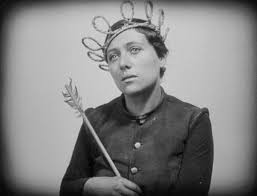
On Not Being “a Religious Person”
Since an assignment years ago by the National Catholic Reporter to do a story on Focolare, a worldwide movement that works for unity and acceptance of diversity, I’ve received the movement’s magazine, Living City. I used to throw it away after a superficial perusal, but I’m now taking time with it and have found the magazine to be a gem.
A recent article includes interviews with young adults on their “dreams, fears, goals, faith.” It doesn’t pretend to be a scientific sample of the views of young adults, but I believe the views expressed are representative nonetheless.
Many of those interviewed were raised Catholic but several of them repeat the modern mantra, “I’m not a religious person.” The following are what I consider the main points they raised about their faith.
· Several say their goal in life is “to live happily and comfortably,” be financially stable, and be “surrounded by wonderful people that I love.”
· Several struggle with intellectual questions. One struggles with faith because he feels “resistance towards believing in something that I can’t rationalize.” Another says his “biggest fear in life is the possibility that my Christian faith is unfounded. I am utterly terrified of a meaningless, nihilistic existence.” Others struggle with “the fact that so many truths we hold are not readily apparent or obvious.”
· Several question why God permits evil.
· One says faith plays an important role in her life, “not in the traditional Sunday Mass way of faith, but in my own way.”
· “I don’t have any strong religious beliefs,” said another. “I have felt stifled by the strict confines of organized religion and turned off by some of the ‘black and white’ ideals I was brought up with.”
Studies I’ve read confirm that these comments mirror what millions of young people, and many older people as well, say about faith and religion. Who can’t relate to many of these misgivings, especially in the context of today’s climate of opinion? Many of us may have the same thoughts but be reluctant to express them.
Still, there are reasonable responses to their comments, starting with the desire for happiness. We may define it differently, but happiness is the goal of the young as it is of virtually everyone, and many religious philosophers and theologians have agreed that that is exactly how it should be. We were made for happiness and as the writers of the Declaration of Independence said, we have a right to pursue it. The question is how we define it and where and how we seek it.
The comments about believing in “what you can’t rationalize,” the fear that faith “may be unfounded,” that “so many truths we hold are not readily apparent or obvious,” and that a respondent feels “stifled by the strict confines of organized religion” confirms for me what other studies have consistently shown about young people and faith.
They really don’t know much about the faith in which they were brought up. A change in that department may go a long way in addressing many of their concerns. That’s not to say that religion can satisfactorily answer everybody’s questions and objections, but you should expect that people with these misgivings make an effort to find answers. And there are answers.
As with older people, one of the biggest stumbling blocks to faith for young people is the lack of a good answer to the question, “Why does God allow evil?” Many spiritual writers answer that God would otherwise not allow for human freedom, and personally, I think that’s a rational, if not entirely gratifying, answer.
Perhaps as with many past generations, I believe there is a bias among the young against what is “tried and true.” In my view, the “Sunday Mass way” of faith is essential, though not all-encompassing. Being the way ancient Christians worshipped, combining the Jewish synagogue readings with the Eucharist of the Last Supper, it’s the gold standard for worship even though it may not always provide a “warm fuzzy.”
I admire these and other young people who are at least asking questions. But given the perception of many young people today, many probably wouldn’t want to be defined as “religious” in any case. Given its rewards, however, I’m certain most would want to cultivate a personal relationship with God, and despite the perception, religions have centuries of experience in that field and can help.



